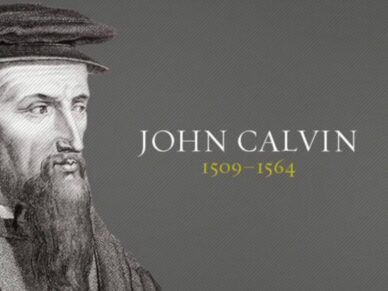John Calvin was a true servant of God, (but then again, so was Nebuchadnezzar!), leaving a long and likely misinterpreted legacy.
He followed shortly behind Luther in delivering an interpretation of Christianity that was indeed contrary to the prevailing Catholic tradition:
- Sola Scriptura (interpretation by Scripture Alone)
- Sola Fide (justification by Faith Alone)
- Sola Gratia (salvation by Grace Alone)
- Sola Christus (all through Christ Alone)
became the cornerstones of the reformed faith. However, their overwhelming social prejudices against the Jews of their day caused them to continuously dispose of the very viable worship practices given by Yahweh, and delivered through the Older Testament period saints and prophets.
WSC Question 1: What is the chief end of man?
Because the reformed interpretation of scripture rightfully exalted the veracity of God's Word over the opinions of the (Catholic) church, it quickly became the prevailing theology of Northern Europe. Within 100 years of John Calvin, the leading theologians of England produced what was come to be known as the Westminster Shorter Catechism, which begins with the above question.
WSC Answer 1: To glorify God and enjoy Him forever.
Now this answer appears to be both simple and memorable enough to gain a foothold in the minds of believers, but at no point does it truly define either "glorify" or "enjoy", leaving both words open to an extra-biblical interpretation. What I would like to suggest (in subsequent posts) is that both words are clearly set into proper context in the scriptures and can assist all believers to more fully bring glory to Yahweh and to find tremendous enjoyment from fellowship with their creator, redeemer and heavenly Father.

